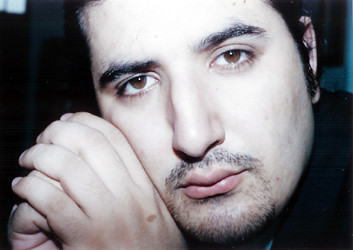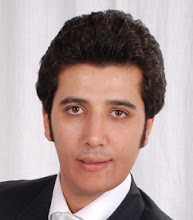But it will not grow in the same way as U.S. democracy, says Arash Sigarchi
By Jane MorseStaff Writer
 Washington -- It is possible for democracy to take root in Iran, but it will not grow in the same way as democracy did in America, says Arash Sigarchi, an Iranian journalist who has been imprisoned for his outspokenness.
Washington -- It is possible for democracy to take root in Iran, but it will not grow in the same way as democracy did in America, says Arash Sigarchi, an Iranian journalist who has been imprisoned for his outspokenness.“Iran must gain democracy through ways other than the ways used in America,” he said in an interview with America.gov. “I think if you increase the people’s awareness and improve education of the Iranian people, they can gain democracy themselves very well.”
Sigarchi lives in the United States now, but in January 2005, he was imprisoned in Iran for discussing “censored” topics on his blogs.
In January 2007, he was granted a medical furlough to seek treatment for cancer. After his release, he spoke frequently to the foreign press and public about the repression of freedom of speech and the arrests of other journalists in Iran. He now fears for his life if he must return to his homeland.
Speaking through an interpreter to America.gov, Sigarchi said it might surprise the average American to know there is a democratic tradition in Iran, although it is nothing like that which developed in the United States.
Some 2,500 years ago, he said, Cyrus of the Achaemenid Empire, which included much of modern Iran, issued the first charter for human rights. “Even though democracy and human rights can hardly be imagined coming from a king, many kings in Iran’s past history have done this,” Sigarchi said.
“But if we set that history aside,” he said, “and look at the recent era, in the recent 100 years when we had the Constitutional Revolution take shape, we have experienced relative democracy in Iran every once in awhile. For example, the few years after the Constitutional Revolution and before Reza Shah Pahlavi came to power. Or we were beginning to feel democracy before the British-American 1953 coup overthrew Dr. Mohammad Mosadegh’s government. And the first two to three years after the 1979 revolution in Iran, there was sort of a democracy.”
The Iranian Constitutional Revolution, which took place between 1905 and 1911, led to the establishment of an elected parliament. The revolution opened the way for significant changes in Iran, including greatly expanded press freedom and a proliferation of newspapers.
FIGHTING FOR FREE SPEECH
Now 30 years old, Sigarchi has spent most of his life as a journalist on the frontlines in the fight for freedom of speech in Iran.
Iranians at an Internet café in Tehran (© AP Images)
As the editor of the daily newspaper Gilan Emrooz, he tried to sidestep censorship rules imposed on the print media by expressing dissent on government policies on the Internet and via blogs.
Blogging has become the communication medium of choice for many Iranians opposed to the current regime. Some estimates place the number of active Iranian blogs at as many as 100,000. According to Sigarchi, Iranians regard blogs as very accurate sources of news.
“Usually in Iran, bloggers sign their real names,” he explained. “No one likes to spread lies with their real name.”
Sigarchi also used his blog postings to defend other bloggers who spoke out against the Iranian regime and who were arrested and beaten by Iranian authorities. Sigarchi himself was detained by police for posting both an article and photos of a dissident rally in Tehran, Iran, in 2004.
In January 2005, Sigarchi was arrested for espionage and for insulting the leaders of the Islamic Republic. Originally sentenced to 14 years in prison, his prison term was reduced to three years, which he did not complete due to the onset of cancer and a furlough to seek medical treatment.
“Last time, they sentenced me to 14 years; I think this time they will execute me,” he told America.gov when discussing the possibility of returning to Iran.
During his stay in the United States, he has expanded his Persian language Web blog and started an English language Web blog.
“My English blog is getting attention worldwide, and my friends in Iran read my Persian blog and say they can learn about my views without the threat from the regime,” Sigarchi said, adding he now can practice journalism “more freely and with ease of mind.”
LOOKING TO THE FUTURE
Sigarchi has completed a book on responsible journalism that he hopes to publish using his own finances. Entitled Local Journalism, the book is aimed at the estimated 3,000 newspapers and publications produced in Iran’s provinces. “They are not strong from a theoretical aspect,” Sigarchi said of these small news operations, “and I thought I could help them by publishing this book.”
Sigarchi also dreams of completing his law degree in the United States. He began his legal studies while in prison in Iran.
“One of my ideals is to study law here, or continue studying journalism, or to find work at important centers here and be able to provide them with my views as a journalist,” he said.
Sigarchi believes he has earned his credentials as a dissident journalist. “I have fought a lot for freedom of speech, for human rights in Iran,” he said. “I went to prison; I went to the point of death.”



No comments:
Post a Comment